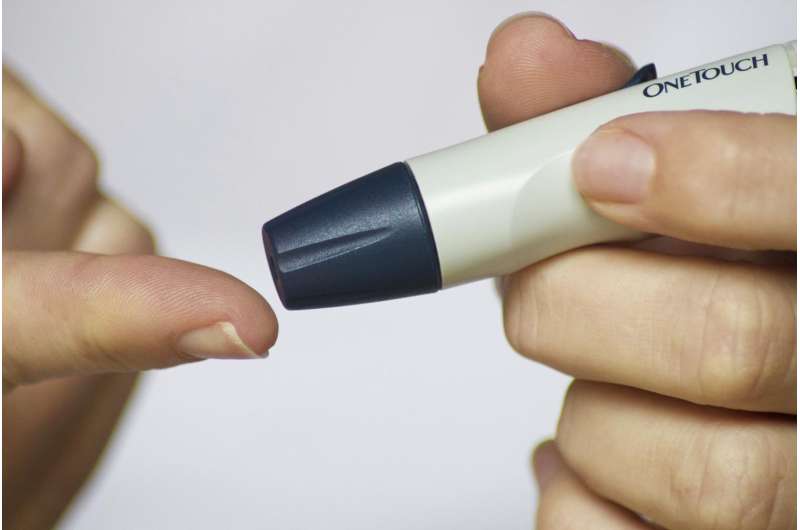Alarming Rise of Type 2 Diabetes Among Young New Zealanders Sparks Health Concerns

New Zealand faces a health crisis with a rising number of young people developing type 2 diabetes. This early-onset form of the disease is linked to obesity, social inequality, and lifestyle factors, challenging health systems and requiring urgent, coordinated action.
In recent years, New Zealand has seen a troubling increase in type 2 diabetes cases among children, teenagers, and young adults. Traditionally considered a condition affecting middle-aged and older populations, type 2 diabetes is now becoming a significant health issue among the youth, with serious implications for their well-being and the healthcare system.
Type 2 diabetes is characterized by the body's inability to use insulin effectively, leading to elevated blood glucose levels. If unmanaged, this condition can cause long-term damage to vital organs, including the heart, kidneys, eyes, and nerves. Notably, it tends to progress more rapidly in younger individuals, leading to earlier onset of complications and increased mortality risk.
A comprehensive study analyzing data from over 65,000 people with type 2 diabetes in the Waikato and Auckland regions reveals alarming trends. Approximately 1,198 individuals under 25 years old have been diagnosed with the disease, with more than a quarter (28.0%) of these cases being type 2 diabetes. This marks a sharp rise from less than 5% two decades ago, highlighting a significant epidemiological shift.
The management of diabetes in young people remains challenging, with only about 25% meeting their blood glucose (HbA1c) targets. Poor control increases the likelihood of health complications and necessitates more frequent medical interventions. Compounding these challenges are disparities in healthcare access, especially among Māori and Pacific communities, who are disproportionately affected.
The surge in young-onset type 2 diabetes correlates strongly with factors like obesity, which affects nearly 90% of diagnosed youths in the study. Childhood obesity rates in New Zealand have been climbing, driven by lifestyle factors, socioeconomic issues, and limited access to affordable, healthy foods. Poverty further exacerbates the problem because lower-income families face barriers to healthcare and proper nutrition.
The intergenerational nature of diabetes risk is also concerning. Children born to mothers with diabetes are at a higher chance of developing the disease themselves. Addressing these issues requires a multi-layered approach focused on reducing child poverty, improving access to healthy foods, and emphasizing early detection and intervention.
Healthcare services for young people with diabetes must adapt to their unique needs, with culturally respectful care and accessible technological solutions. Implementing early screening programs for high-risk youth, akin to successful models overseas, could significantly delay or prevent disease onset.
To curb this epidemic, significant investment, policy changes, and community engagement are essential. Through coordinated efforts, enhanced detection, effective treatment programs, and addressing social determinants of health, New Zealand can turn the tide on this growing health crisis.
Stay Updated with Mia's Feed
Get the latest health & wellness insights delivered straight to your inbox.
Related Articles
Innovative Eye Drops Offer Alternative to Reading Glasses for Presbyopia Patients
New research highlights the potential of specialized eye drops as a convenient, non-invasive alternative to reading glasses for presbyopia patients, offering sustained vision improvement up to two years.
Plastics and Human Health: Critical Issues in the Global Treaty Negotiations in Geneva
Global negotiations in Geneva aim to establish a treaty to counter plastic pollution, but health concerns and industry opposition threaten to weaken commitments. Experts warn plastics pose serious health risks at all stages of their lifecycle.
Study Shows Wearable Devices Vary in Accuracy for Fitness Metrics
A recent study examines the accuracy of wearable fitness devices like Apple Watch, highlighting their strengths in tracking heart rate and steps but cautioning about energy expenditure errors. Learn how these devices can support your health journey while recognizing their limitations.
Biologists Monitor Jamestown Canyon Virus Spread in Pennsylvania Mosquitoes
Pennsylvania mosquitoes have tested positive for Jamestown Canyon virus, a mosquito-borne illness that can cause serious neurological and respiratory symptoms. Researchers emphasize the role of climate change in spreading these viruses and highlight preventive measures to reduce risk.



